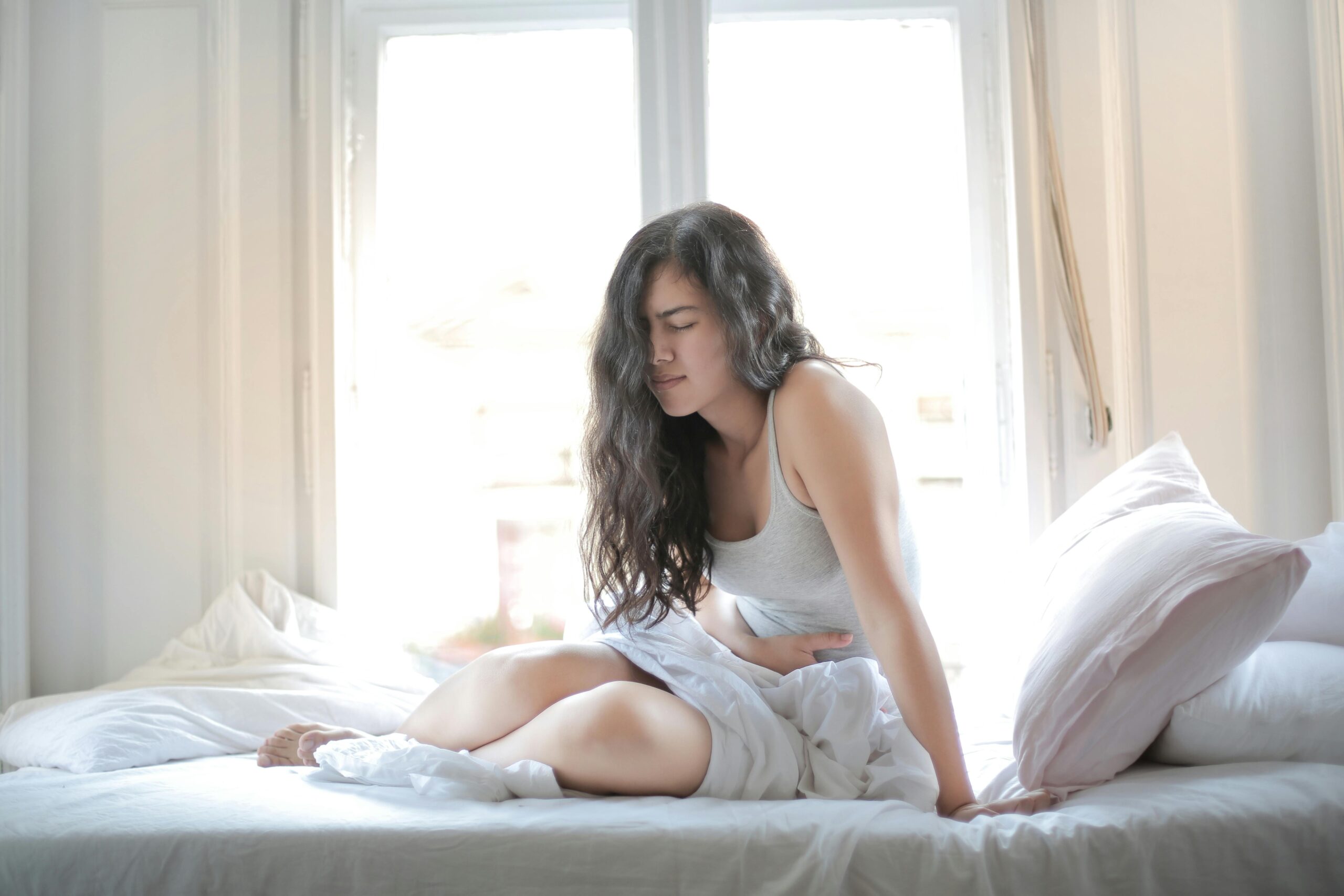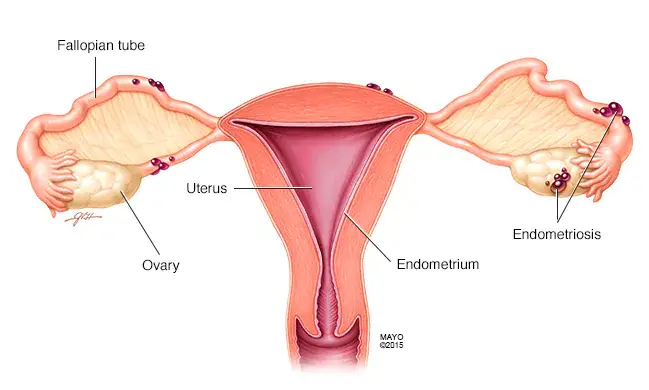
As a mother living with endometriosis, I know firsthand how this condition can impact not just our health but every aspect of our lives. It’s not just a medical condition; it’s something that affects how we care for our families, ourselves, and how we live day to day. I want to share what endometriosis is, how it can affect our quality of life, and offer some thoughts on how to cope—because as mothers, we are already incredibly strong, but dealing with endometriosis can sometimes feel like a burden we didn’t ask for.
What Is Endometriosis?
Endometriosis is a medical condition where the tissue that normally lines the inside of the uterus (called the endometrium) begins to grow outside of the uterus. These abnormal growths, often referred to as endometrial implants or lesions, can be found on the ovaries, fallopian tubes, the outer surface of the uterus, and other pelvic organs. Just like the lining inside the uterus, this tissue responds to the hormonal changes of the menstrual cycle, thickening and shedding each month. However, because the tissue is outside the uterus, it has no way to exit the body, leading to inflammation, scar tissue formation, and sometimes the development of adhesions (bands of scar tissue that cause organs to stick together). This can cause chronic pain, heavy menstrual periods, and fertility issues.
Why Is It Difficult to Conceive When You Have Endometriosis?
As a mother living with endometriosis, I know the emotional weight that comes with trying to conceive while managing this condition. Unfortunately, endometriosis can make getting pregnant more difficult for a number of reasons, and I want to share what I’ve learned with you.
- Blocked Fallopian Tubes: The inflammation and scar tissue caused by endometrial implants can lead to blockages in the fallopian tubes, preventing the egg from reaching the sperm or the fertilized egg from traveling to the uterus.
- Distorted Pelvic Anatomy: Scar tissue and adhesions can cause organs like the ovaries, uterus, and fallopian tubes to become misaligned or stuck to one another, making it harder for the reproductive system to function properly.
- Inflammation: Endometriosis creates chronic inflammation in the pelvic area, which can interfere with the ability of the egg to be fertilized or the embryo to implant in the uterine lining.
- Impaired Egg Quality: In some cases, endometriosis can affect ovarian function, leading to lower egg quality or fewer viable eggs being released during ovulation.
- Hormonal Imbalances: The condition may disrupt the delicate hormonal balance necessary for regular ovulation, making it harder for women to track and predict their most fertile days.
- Hostile Environment for Sperm or Embryo: The inflammatory environment in the pelvic region can make it harder for sperm to fertilize the egg or for an embryo to implant and grow.
While endometriosis can make it more challenging to conceive, many women with the condition are able to have successful pregnancies, either naturally or with medical assistance, or fertility treatments. It is essential to work with a healthcare provider to explore the best options for managing both endometriosis and fertility.
How Does Endometriosis Affect the Quality of Life?
Living with endometriosis can be exhausting, and it touches every part of your life—from managing your home to taking care of your children. For many of us, the symptoms flare up unpredictably, making it hard to plan anything. The pain, fatigue, and emotional strain can make even simple tasks feel overwhelming.
It’s not just about managing physical symptoms. Endometriosis can take a toll on your mental health too. There are days when the pain is so intense that getting out of bed feels impossible. This often brings with it a sense of guilt or frustration because, as moms, we always want to give our best to our children. Sometimes, we’re left wondering if we are doing enough, and that guilt can be heavy.
Recognizing the Symptoms

Many women experience different symptoms, and it’s important to listen to your body. Here are some of the most common signs:
- Pelvic Pain: This is the hallmark symptom, often more severe during periods but can also happen throughout the month.
- Heavy Menstrual Bleeding: Periods may be more intense, longer, or more painful than usual.
- Chronic Fatigue: The pain and inflammation can leave you feeling drained even after a full night’s sleep.
- Pain During Intercourse: Endometriosis can make intimacy painful, which can affect your emotional wellbeing.
- Bowel and Bladder Issues: Some women experience digestive problems like bloating, diarrhea, or constipation.
Coping With Endometriosis as a Mother
It’s not easy, and there’s no magic solution, but here are a few ways I’ve learned to cope with endometriosis while still being there for my family:
- Lean on Your Support System: Don’t be afraid to ask for help. Don’t be afraid to express how you feel. Whether it’s from your partner, family, or close friends, it’s okay to need a break sometimes. You’re not expected to do it all, all the time.
- Manage Your Energy: I’ve learned to prioritize and pace myself. Some days, you might not be able to do it all, and that’s perfectly fine. It’s important to give yourself grace and take rest when you need it.
- Find a Good Healthcare Team: It took me a while, but finding a doctor who truly listens and understands the challenges of endometriosis has made a world of difference. Don’t hesitate to advocate for yourself.
- Practice Self-Care: Whether it’s yoga, meditation, or simply taking a hot bath, find small moments where you can focus on yourself. Self-care isn’t selfish; it’s necessary to keep being the amazing mom that you are.
- Educate Yourself and Your Loved Ones: The more you and your family understand about endometriosis, the more they can help and support you. There are many resources available to help explain the condition in a way that’s compassionate and informative.
Dealing with Social Stigma


One of the hardest parts about living with endometriosis, beyond the physical pain, is the emotional toll that comes with the social stigma and constant questions from others. For many of us, endometriosis affects fertility, making it difficult or sometimes impossible to conceive.
The well-meaning but painful questions like, “When will you have another baby?” or “Why aren’t you pregnant yet?” can cut deep, especially when you’re already navigating your own complex emotions around motherhood and your body. It’s hard not to feel frustrated, defensive, or even heartbroken by these questions, but I’ve found that setting gentle boundaries can help. It’s okay to explain that you’re dealing with health issues that affect your ability to conceive, or simply say that it’s a personal matter.
You don’t owe anyone an explanation for your journey, but sharing a bit of your experience can sometimes foster understanding. When dealing with social stigma, it’s important to surround yourself with people who truly understand and respect your journey, and who don’t minimize the challenges you’re facing. Support groups, either online or in person, can also be a lifesaver—they remind you that you’re not alone, and that your experience is valid, no matter what society expects or assumes.
You Are Not Alone
The hardest part about endometriosis is often feeling like you’re alone in the struggle, but you’re not. There are many of us out there, quietly pushing through, balancing motherhood with a condition that often gets overlooked or misunderstood.
But I want you to know, even on the hardest days, you are doing an incredible job. Endometriosis may shape parts of our journey, but it doesn’t define who we are as mothers. We are resilient, we are strong, and most importantly, we are not alone in this. Let’s continue to support one another, share our experiences, and give ourselves permission to take things one day at a time.


Leave a Reply